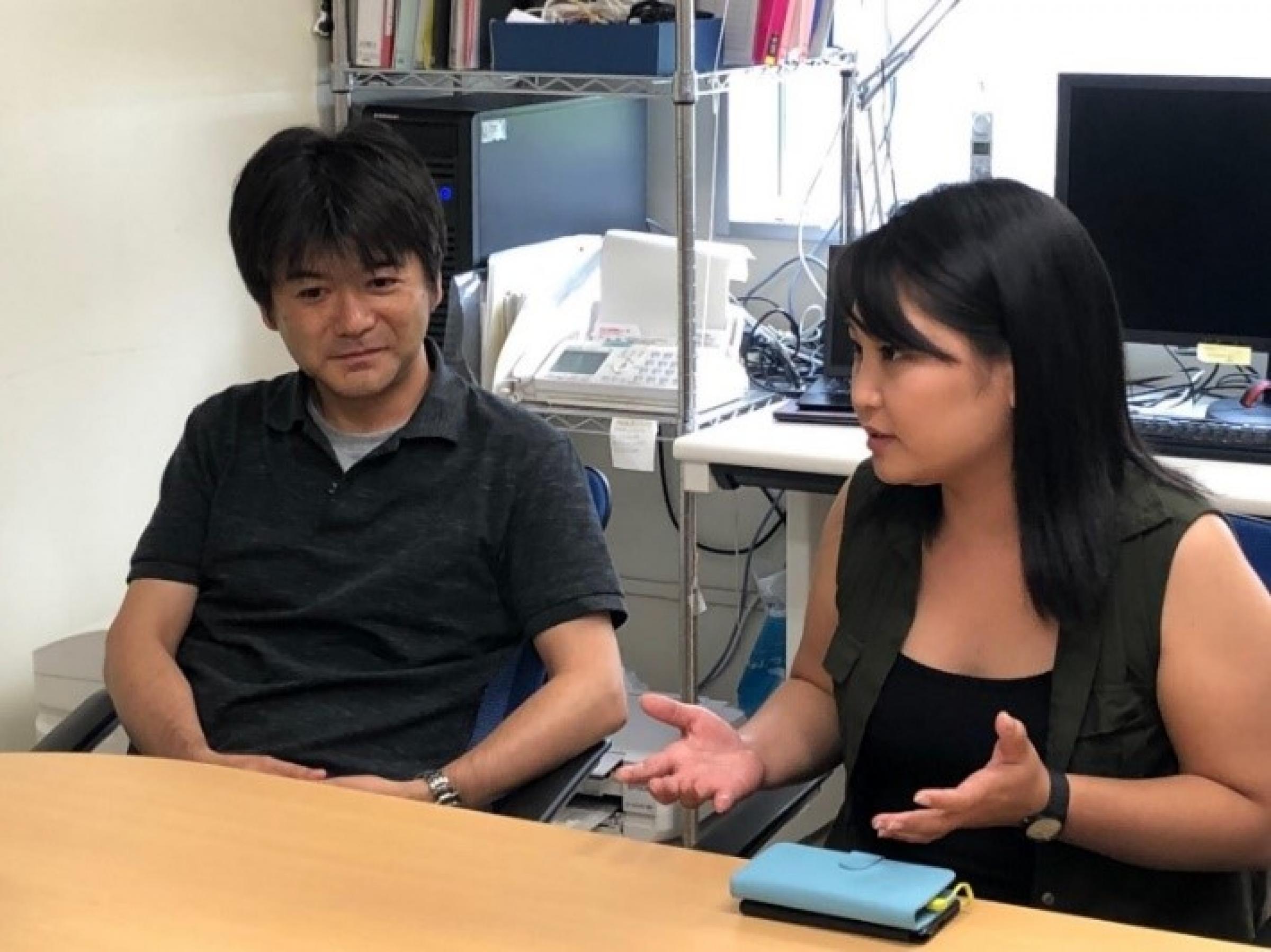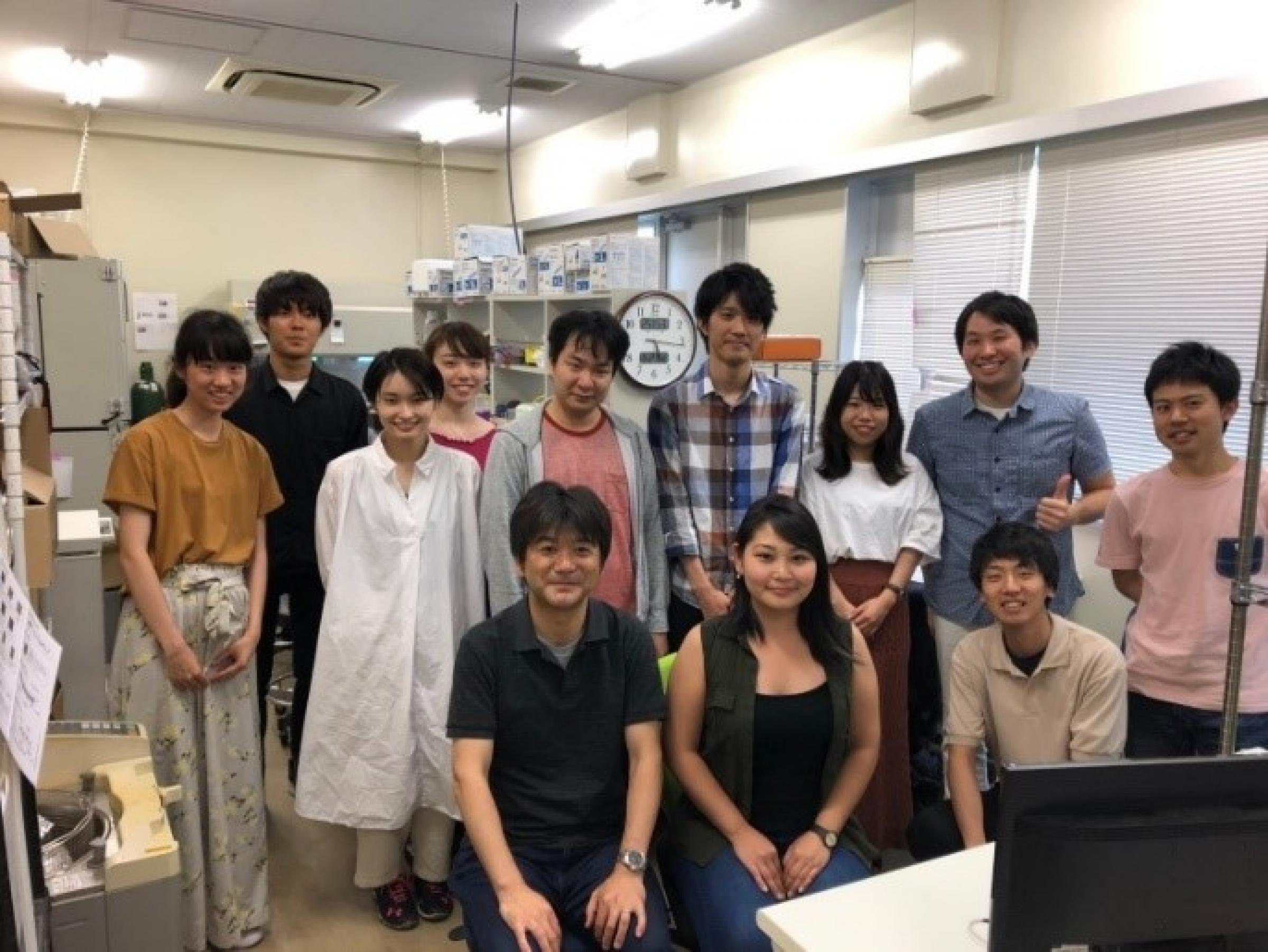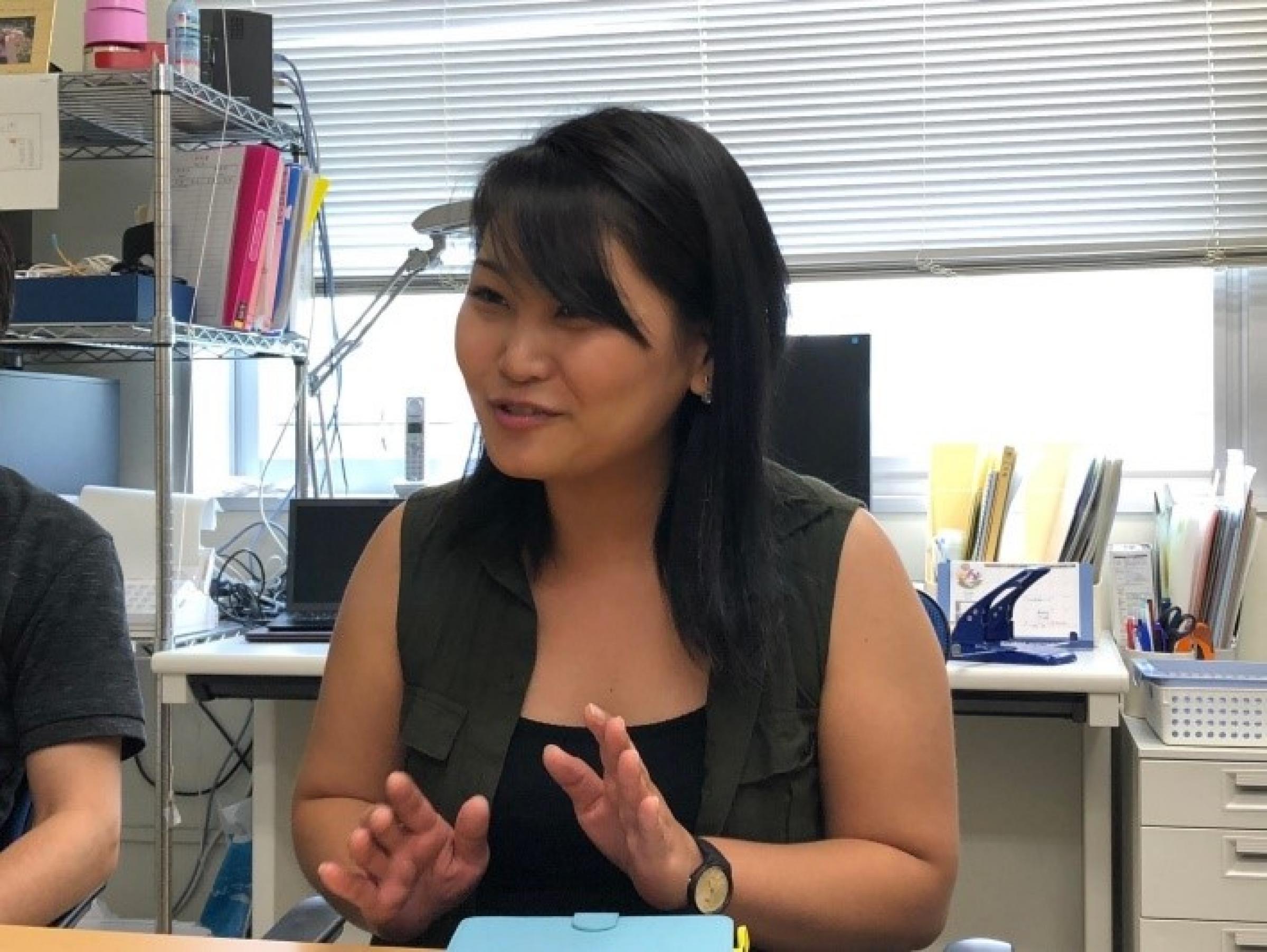- YNU
- News and Information
- 【The Knowledge Co-Creation Program for Nikkei Communities 2】Exchange fosters human resources
~Learning from the forefront of acceptance of foreigners~
【The Knowledge Co-Creation Program for Nikkei Communities 2】Exchange fosters human resources
~Learning from the forefront of acceptance of foreigners~

Medical Materials and Regenerative Medicine course of the Knowledge Co-Creation Program for Nikkei Communities has started since May 2019 at YNU. Ms. Suzukawa Helena Tiemi, a third-generation Brazilian Nikkei, is participating in this training.
In Latin American countries where aging population is getting one problem, it is necessary to develop human resources with advanced medical knowledge and experience. This training provides trainees with opportunities to deepen their knowledge of advanced medicine and to experience leading-edge research. The development of Nikkei human resources in this field is expected to contribute to the improvement of medical technology in Latin American countries and to strengthen Japan's cooperation with Latin American countries through Nikkei people.
This time, JICA Freshmen have interviewed Tiemi-san about her opportunity to participate in the Knowledge Co-Creation Program for Nikkei Communities and the connection with Japan as well as her instructor Prof. Junji Fukuda of the Faculty of Engineering.
The first opportunity for Tiemi-san to participate in the Knowledge Co-Creation Program for Nikkei Communities was an invitation from one professor who had also participated in the training at YNU in the past. The network of the trainees has led to the development of human resources in the next Nikkei society. In addition, Tiemi -san thought that her own research experience in the medical field was useful in the laboratory of Prof. Fukuda, who is famous also in Brazil. And she was interested in regenerative medicine, which has been developing rapidly in recent years. This is why she requested to study in the laboratory.
Prof. Fukuda cooperates with the acceptance of trainee of this program every year. “I’d like to give my students a chance to communicate with foreigners,” says Prof. Fukuda. When he was a university student, he had one regrettable experience. He wasn’t able to communicate with one very faous foreign researcher because he was not confident in his English skills. He doesn’t want his students to experience this. This is why he cooperates with this program. In fact, Tiemi-san is actively communicating with the students in the laboratory, and the exchange with Tiemi-san seems to inspire his students.
Some of the trainees accepted at this laboratory are active in their country, and doing collaborative research with Prof. Fukuda. This connection that contributes to the development of medical technology in Japan and Latin America must be the result of the trainees’ own efforts and the culture of fostering students in this laboratory.
In Latin American countries where aging population is getting one problem, it is necessary to develop human resources with advanced medical knowledge and experience. This training provides trainees with opportunities to deepen their knowledge of advanced medicine and to experience leading-edge research. The development of Nikkei human resources in this field is expected to contribute to the improvement of medical technology in Latin American countries and to strengthen Japan's cooperation with Latin American countries through Nikkei people.
This time, JICA Freshmen have interviewed Tiemi-san about her opportunity to participate in the Knowledge Co-Creation Program for Nikkei Communities and the connection with Japan as well as her instructor Prof. Junji Fukuda of the Faculty of Engineering.
The first opportunity for Tiemi-san to participate in the Knowledge Co-Creation Program for Nikkei Communities was an invitation from one professor who had also participated in the training at YNU in the past. The network of the trainees has led to the development of human resources in the next Nikkei society. In addition, Tiemi -san thought that her own research experience in the medical field was useful in the laboratory of Prof. Fukuda, who is famous also in Brazil. And she was interested in regenerative medicine, which has been developing rapidly in recent years. This is why she requested to study in the laboratory.
Prof. Fukuda cooperates with the acceptance of trainee of this program every year. “I’d like to give my students a chance to communicate with foreigners,” says Prof. Fukuda. When he was a university student, he had one regrettable experience. He wasn’t able to communicate with one very faous foreign researcher because he was not confident in his English skills. He doesn’t want his students to experience this. This is why he cooperates with this program. In fact, Tiemi-san is actively communicating with the students in the laboratory, and the exchange with Tiemi-san seems to inspire his students.
Some of the trainees accepted at this laboratory are active in their country, and doing collaborative research with Prof. Fukuda. This connection that contributes to the development of medical technology in Japan and Latin America must be the result of the trainees’ own efforts and the culture of fostering students in this laboratory.

“I might look like Japanese but my soul is totally Brazilian” says Tiemi-san. However, she sometimes felt unsure about her identity. Tiemi-san grew up in a traditional Japanese family that had Japanese cuisine every day. Hence, her lifestyle was also Japanese as well as her appearance. Those circumstances made her feel she’s different from other Brazilian.
It was at such point when she started to actively join “Seinenkai”,in which many other young Nikkeijins like Tiemi-san also took part. It was a platform where Tiemi-san could co-create her own identity with fellow Nikkeijin. The life in Japan has been full of surprises for Tiemi-san who had never been abroad before. But thanks to the members of Fukuda-lab, she’s having a very exciting and fruitful time in Japan.
It was at such point when she started to actively join “Seinenkai”,in which many other young Nikkeijins like Tiemi-san also took part. It was a platform where Tiemi-san could co-create her own identity with fellow Nikkeijin. The life in Japan has been full of surprises for Tiemi-san who had never been abroad before. But thanks to the members of Fukuda-lab, she’s having a very exciting and fruitful time in Japan.

Japan is now facing a new era that more foreigners would visit and live in Japan due to the relaxation of immigration laws and globalization.
So during this interview JICA staff asked Tiemi-san and Prof. Fukuda a question; what we can do to welcome and accommodate foreigners coming to Japan. Tiemi-san pointed out that it’s very important for all of us to understand that there definitely are a number of differences between Japanese and foreigners such as culture and the way of thinking to have good relationships with foreigners. This message shall be very meaningful since it is conveyed by Tiemi-san who have lived in diverse environment struggling with her own identity. Prof. Fukuda told us that this question is so difficult that nobody can give a perfect answer. However, he clearly stated that he has many things to help foreigners if it’s related with the field of his specialty; science. This point makes us realize that what’s important is to do what we can for foreigners whether it is small or not.
This question can’t be solved in a day. That’s why we believe there’re much to learn from people like Tiemi-san and Prof. Fukuda, who have been in a front line of interaction between Japanese & foreigners.
For the Japanese Article, please see the link below:
https://www.jica.go.jp/yokohama/topics/2019/190827_2.html
So during this interview JICA staff asked Tiemi-san and Prof. Fukuda a question; what we can do to welcome and accommodate foreigners coming to Japan. Tiemi-san pointed out that it’s very important for all of us to understand that there definitely are a number of differences between Japanese and foreigners such as culture and the way of thinking to have good relationships with foreigners. This message shall be very meaningful since it is conveyed by Tiemi-san who have lived in diverse environment struggling with her own identity. Prof. Fukuda told us that this question is so difficult that nobody can give a perfect answer. However, he clearly stated that he has many things to help foreigners if it’s related with the field of his specialty; science. This point makes us realize that what’s important is to do what we can for foreigners whether it is small or not.
This question can’t be solved in a day. That’s why we believe there’re much to learn from people like Tiemi-san and Prof. Fukuda, who have been in a front line of interaction between Japanese & foreigners.
For the Japanese Article, please see the link below:
https://www.jica.go.jp/yokohama/topics/2019/190827_2.html
